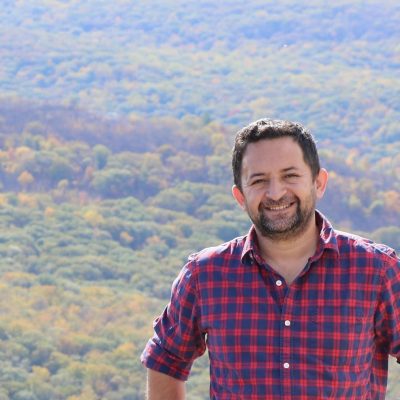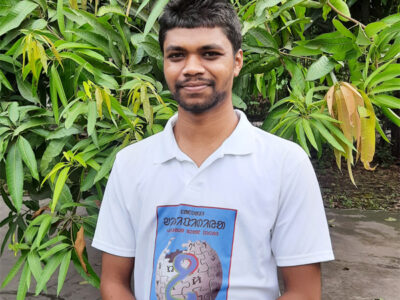Q&A: Meet Noor Pamiri, Wakhi language activist

Noor Pamiri, Wakhi language activist. Picture provided by Noor Pamiri himself.
Each week, the upcoming host will answer several questions about their background and give a brief overview of their language. This Q&A is with Noor Pamiri (@noorpamiri) who will provide a sneak preview of what he will be discussing during his week as host.
Rising Voices (RV): Please tell us about yourself.
Noor Pamiri (NP): My name is Noor Pamiri. I was born in the Hunza Valley of Pakistan. I am currently based in New York City. I am working to promote and preserve Wakhi, my mother tongue.
RV: What is the current status of your language on the internet and offline?
NP: Wakhi speakers are using the internet to promote literature and discussions in Wakhi language. Several groups are working to connect Wakhi speakers. Audio-visual content, as well as written text (poetry, stories, prose) is gradually becoming present on the internet. I am co-managing Wakhi.org, the first website exclusively in Wakhi language.
Wakhi has long remained an unwritten language. Currently, three scripts are being used for Wakhi : Cyrillic, Latin and Arabic. The Wakhi language community is divided into four countries (Afghanistan, China, Pakistan, Tadjikistan) using four different writing systems, due to which the content produced by the community in one country may not be fully understood by Wakhi speakers in another country. Some effort has been made to develop a standardized script. Until then, the fate of literature, and more generally written content in Wakhi is bleak.
RV: What topics do you plan to focus on during the week that you’ll manage the @AsiaLangsOnline Twitter account?
NP: I will focus on Wakhi people, language, history, culture and literature. I will also discuss the digitization of Wakhi folklore and poetry.
RV: What are the main motivations for your digital activism? What are your hopes and dreams for your language?
NP: UNESCO has designated/classified Wakhi as one of the “definitely endangered” languages of the world. There are not more than 100,000 speakers at the moment. Even this small number is divided by politics and geography.
My hope is to play my part in making sure that Wakhi stays as a living, thriving language.
Support our work
Since Rising Voices launched in 2007, we’ve supported nearly 100 underrepresented communities through training, mentoring, microgrants and connections with peer networks. Our support has helped these groups develop bottom-up approaches to using technology and the internet to meet their needs and enhance their lives.
Please consider making a donation to help us continue this work.



